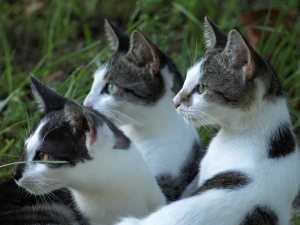Feline Health Risks in Cat Hoarding Situations
A recent study published in the Veterinary Journal investigated the health risks to cats in large-scale hoarding environments. Researchers found that cats in crowded living conditions are at great risk for respiratory infections, gastrointestinal disease, parasites, malnutrition and other symptoms of neglect.
Key findings from the four year study show that a majority of cats in hoarding situations suffered from respiratory infections. For some specific types, the infection rate was as high as 78%. Gastrointestinal problems like diarrhea were also found in the majority of cats in hoarding populations. 88% of hoarded cats experiencing diarrhea were found to have feline enteric coronavirus.
The feline leukemia virus (FeLV) and the feline immunodeficiency virus (FIV) were found in 8% of the cats. Dermatologic conditions such as skin lesions were also common.
As many as 250,000 animals a year are reported as victims of hoarding. While many hoarders start out with good intentions, they are rarely able to provide adequate care for so many cats.
If you suspect hoarding or other forms of animal cruelty among neighbors or acquaintances, the Humane Society of the United States recommends calling 911, or your local police department or animal welfare agency. Be prepared to provide details to the authorities. You may even be asked to testify in certain serious cases.
For more on the cat hoarding health study, click HERE.
